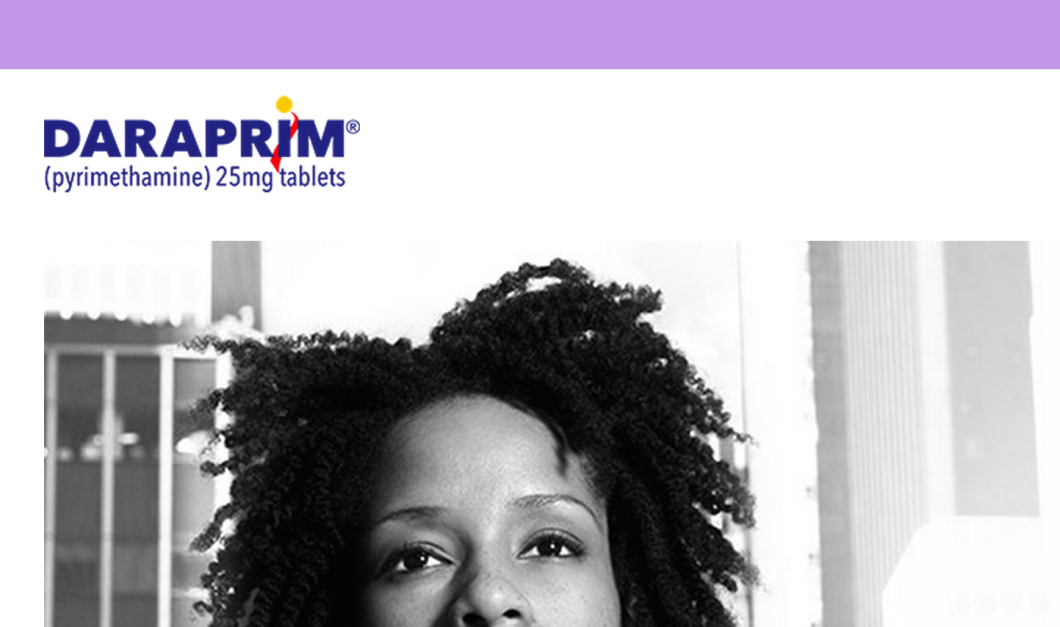Doctors Not Happy After Drug Goes From $13.50/Tablet To $750 Overnight
 Gripe as we might, consumers understand that price increases do happen. What’s not as easily understood is how the price for something can go from $13.50 one day to $750 the next — especially when it’s a generic drug used to save lives.
Gripe as we might, consumers understand that price increases do happen. What’s not as easily understood is how the price for something can go from $13.50 one day to $750 the next — especially when it’s a generic drug used to save lives.
For decades, Daraprim (pyrimethamine), an anti-parasitic used to treat malaria and toxoplasmosis, had been made by GlaxoSmithKline and sold for as little as $1/tablet until not that long ago. Then in 2010 GSK sold the drug to CorePharma, which began to raise the price. Within a year, revenue from Daraprim jumped nearly ten times even though the number of prescriptions written remained flat.
Then last month, a company called Turing Pharmaceuticals acquired the U.S. marketing rights to Daraprim and the retail price for the drug skyrocketed.
According to GoodRx.com’s current listings, getting 60 Daraprim tablets from the pharmacy will cost you at least $45,600. That’s around $760 per tablet. Thus, a patient on Daraprim — already paying thousands of dollars in a year for the drug — now faces paying the prospect of paying several hundred thousand for the same treatment.
The Infectious Diseases Society of America and the HIV Medicine Association recently wrote to Turing, asking the company to “immediately revise the pricing strategy” for Daraprim, and to “address distribution issues that are disrupting access to this generic medication used in the prevention and treatment of opportunistic infections.”
These doctors estimate that HIV patients on Daraprim will now pay anywhere from $336,000/year to $634,500/year, depending on a patient’s weight.
“This cost is unjustifiable for the medically vulnerable patient population in need of this medication and unsustainable for the health care system,” explains the letter [PDF].
Turing CEO Martin Shkreli, defended his company’s actions to the New York Times. He claims that so few patients use the drug that the healthcare system will not be negatively affected.
“This isn’t the greedy drug company trying to gouge patients, it is us trying to stay in business,” explained. “This is still one of the smallest pharmaceutical products in the world… It really doesn’t make sense to get any criticism for this.”
Shkreli says the money will be used to invest in research for a better drug to treat the same diseases.
But doctors aren’t convinced by this argument.
Dr. Judith Aberg, the chief of the division of infectious diseases at the Icahn School of Medicine at Mount Sinai tells the Times that hospitals, unable to obtain or afford Daraprim, could begin to use “alternative therapies that may not have the same efficacy.”
The doctor says Mount Sinai continues to prescribe the drug, but it’s so expensive that each authorization has to be specially reviewed.
“This seems to be all profit-driven for somebody,” Dr. Aberg said, “and I just think it’s a very dangerous process.”
Meanwhile, Dr. Wendy Armstrong, professor of infectious diseases at Emory University, questions Turing’s claim that, after more than 60 years of physicians using Daraprim, there is a need for a better version of the drug.
“I certainly don’t think this is one of those diseases where we have been clamoring for better therapies,” says Armstrong.
Generic companies could jump in and make a lower-cost version but with so few patients there may not be much of an incentive to make that investment. Additionally, right before the Turing acquisition, Daraprim went to a controlled-distribution model, meaning other drug makers would have difficulty getting samples they need to make a generic.
Drug Goes From $13.50 a Tablet to $750, Overnight [NY Times]
Want more consumer news? Visit our parent organization, Consumer Reports, for the latest on scams, recalls, and other consumer issues.

